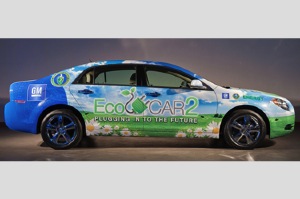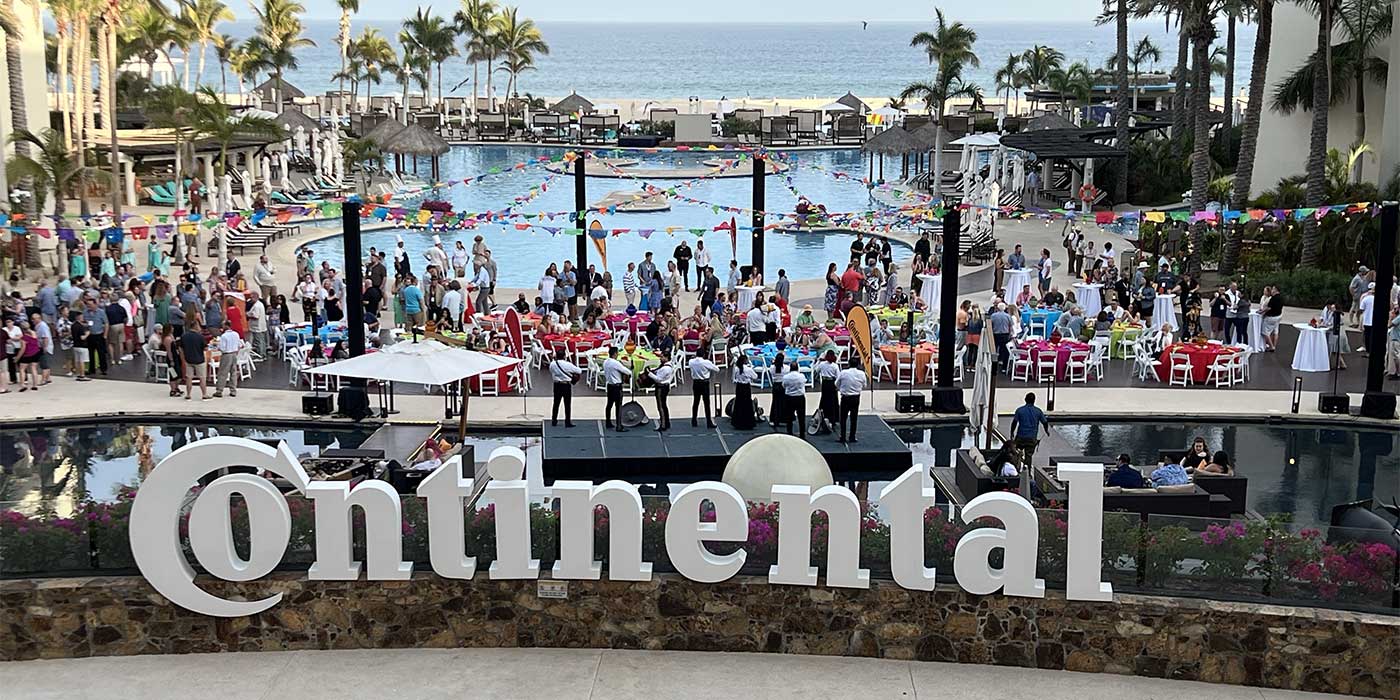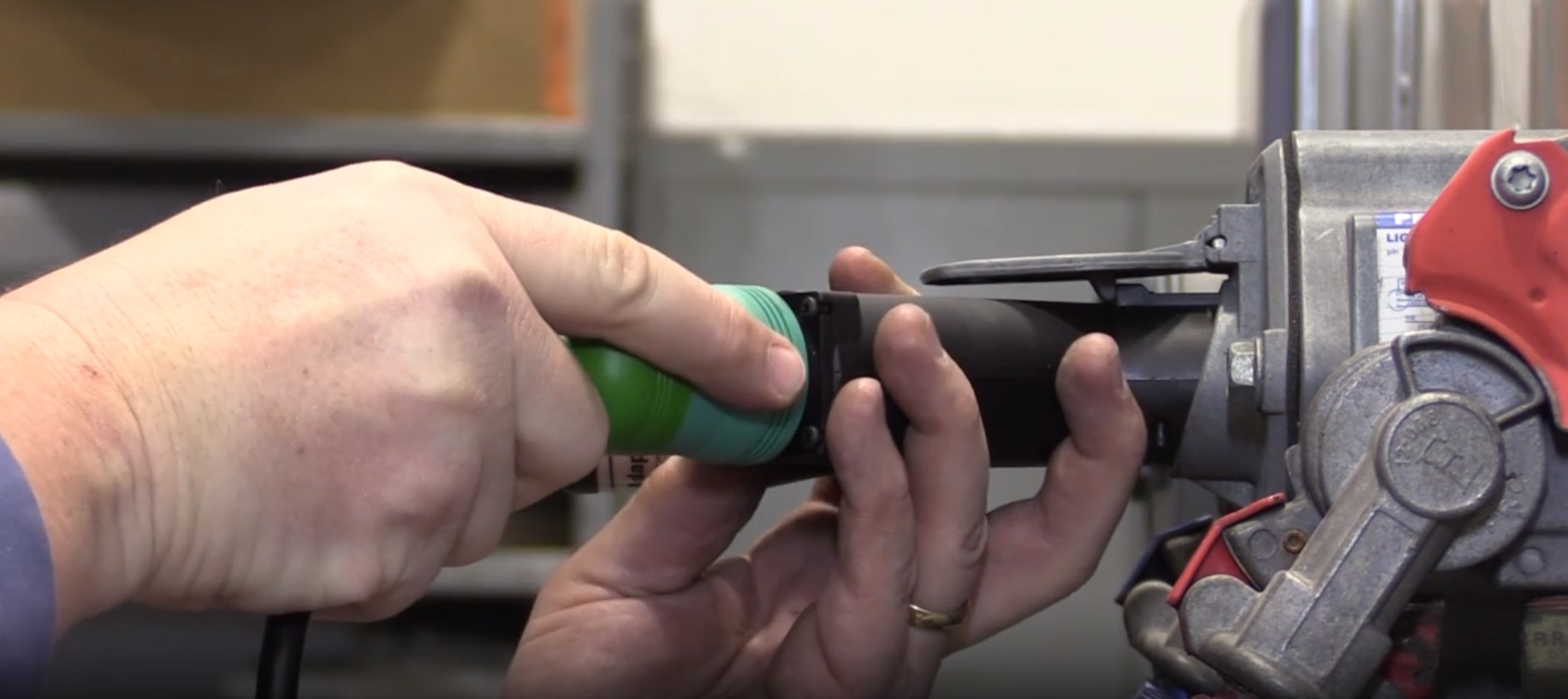 Los Angeles, CA – Building on its legacy http://www.calstatela.edu/academic/engr/solar_eagle/welcome.htm of champion competition vehicles, Cal State L.A’s College of Engineering, Computer Science, and Technology (ECST) has been selected to build the REFLEX Fuel Cell Plug-in Hybrid Vehicle (FC-PHEV) for the EcoCAR 2 Plugging In to the Future http://www.ecocarchallenge.org/ecocar2/ international competition.
Los Angeles, CA – Building on its legacy http://www.calstatela.edu/academic/engr/solar_eagle/welcome.htm of champion competition vehicles, Cal State L.A’s College of Engineering, Computer Science, and Technology (ECST) has been selected to build the REFLEX Fuel Cell Plug-in Hybrid Vehicle (FC-PHEV) for the EcoCAR 2 Plugging In to the Future http://www.ecocarchallenge.org/ecocar2/ international competition.
EcoCAR 2 http://www.ecocarchallenge.org/ is a three-year U.S. Department of Energy’s (DOE) competition that provides engineering students the chance to design and build advanced vehicles that demonstrate cutting-edge automotive technologies. The competition challenges 16 North American universities to reduce the environmental impact of vehicles without compromising performance, safety and consumer acceptability.
EcoCAR 2 includes both new teams and veterans to the Advanced Vehicle Technology Competitions. The schools that have been chosen to participate are:
•California State University, Los Angeles (Los Angeles, CA)
•Colorado State University (Fort Collins, CO)
•Embry-Riddle Aeronautical University (Daytona Beach, FL)
•Mississippi State University (Starkville, MI)
•North Carolina State University (Raleigh, NC)
•The Ohio State University (Columbus, OH)
•Pennsylvania State University (University Park, PA)
•Purdue University (West Lafayette, IN)
•Rose-Hulman Institute of Technology (Terre Haute, IN)
•University of Ontario Institute of Technology (Oshawa, Ontario, Canada)
•University of Tennessee, Knoxville (Knoxville, TN)
•University of Victoria (Victoria, British Columbia, Canada)
•University of Washington (Seattle, WA)
•University of Waterloo (Waterloo, Ontario, Canada)
•Virginia Tech (Blacksburg, VA)
•Wayne State University (Detroit, MI)
“Students will design and build a mid-size vehicle with highly ‘modular’ design that utilizes a skate-board concept that integrates the latest fuel cell and electric vehicle advanced propulsion technologies,” said David Blekhman, an associate professor in ECST who is leading the team. “The modularity will aid in manufacturing flexibility, vehicle service and consumer convenience. The vehicle will also have the options of PHEV20 or 40 to fit the consumer individual driving needs, hence the FLEX designation.”
All the student teams will utilize a vehicle donated by General Motors as the integration platform for their vehicle designs. They will be encouraged to explore a variety of powertrain architectures and follow a real-world engineering regimen modeled after GM’s Global Vehicle Development Process.
For control and communications, the team will explore adopting mobile-distributed computing platforms similar to iPad. In addition to performance, these systems will be designed to assure vehicle, passenger, and pedestrian safety, and effective transportation systems integration. REFLEX (Range Extended Flexible platform) will also be developed to meet the stringent Zero Emissions Vehicle http://www.arb.ca.gov/msprog/zevprog/zevprog.htm standards as categorized by the California Air Resources Board.
To develop student training and REFLEX’s design, the team will also rely on support from CSULA’s industrial, public and government partners and sponsors. Sponsors include: California Air Resources Board; Los Angeles Mayor Antonio Villaraigosa; California Fuel Cell Partnership; USHybrid; the Southern California Section of the Society of Automotive Engineers; Hydrogen Education Foundation; Clean Energy; ZT Plus Thermoelectric Materials, and Hy-Gen Industries.
To attract new students, the college will offer interdisciplinary courses that teach electric, hybrid and fuel cell vehicle technology, fuel cell applications, electronic and computer controls, as well as introduce automotive topics to CSULA’s Department of Mechanical and Electrical Engineering and Computer Science programs.
EcoCAR 2 is a unique opportunity for students to be exposed to state-of-the-art technologies and participate in the development of 21st century automotive industry solutions.
“Our EcoCAR 2 team will actively participate in outreach programs promoting the competition and the advanced propulsion technologies it represents. ESCT students regularly host K-12 students in a variety of venues, work with community colleges on joint projects, and cooperate with the local community and industry,” explained Blekhman.
CSULA is also completing the construction of a hydrogen fueling facility, the likely choice to design and build a FC-PHEV that could support additional sustainable green communities in California. The hydrogen station, scheduled to open in summer 2011, will be the largest electrolysis-based, university-run facility in the country.
EcoCAR 2
Established by the U.S. Department of Energy (DOE) and General Motors (GM), EcoCAR 2’s mission is to educate the next generation of automotive engineers through a hands-on, real-world engineering experience. The competition challenges 16 North American universities to reduce the environmental impact of vehicles without compromising performance, safety and consumer acceptability. General Motors provides production vehicles, vehicle components, seed money, technical mentoring and operational support. The DOE and its research and development facility, Argonne National Laboratory http://www.anl.gov/ provide competition management, team evaluation, technical and logistical support.


